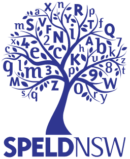Many school communities are excited by the new path that the NSW K-2 English syllabus is taking and they are ready to jump in feet first into evidence-based reading instruction. Armed with the understanding that a systematic and explicit approach to reading instruction is the most effective in reaching all learners, many schools are now seeking to understand what that might mean in their context.
Our exciting new course, Teaching Reading in the Early Years, gives teachers and schools leaders clarity around the planning process involved in developing a systematic, cohesive, and structured approach to teaching reading in the early stages of reading development. How do we ensure that students get the quality instruction and the extensive practice they need to ensure they become successful readers? How can we set up our classroom and develop routines that gives us the best ‘bang for our buck’ with our instructional time? SPELD NSW answers these questions and more on Day 2 of this 3 day course. Read more about day 1 here.
On day 2 on the course, you work through 4 detailed planning models across the basic and the extended phonics code. You engage in some challenging activities that help you consider some of the important planning decisions involved in developing an explicit pedagogy in reading. Participants who already have a phonics program their schools found they took much out of this day- as working with these planning models allowed them to critically reflect on their practice and how they can plan ever more effectively for their students. The process of planning empowers teacher through improving their content knowledge and delving deeply into some of the trickier bits of the phonic code!
On day 2 we also look at arguably the most important part of learning to read- practise. Practise, practise, practise, is they motto of the day and we show you how to make it meaningful, effective and differentiated. We look at how to implement daily reviews of prior taught content to support spaced retrieval practice and we critically analyse what is a quality practice activity- and what might be busy work in disguise.
A burning question on everyone’s mind is how to select decodable readers for students and how to differentiate. We have some great insights into this important area too! You will get your hands on a wide range of decodable books and we will talk through some of the key decisions that need to be made to support all your learners.
See our Upcoming Professional Learning Courses including the next Teaching Reading in the Early Years.
– Veronica Alexander, Professional Learning and Development Lead
Teaching Reading in the Early Years – Blog 1 – Why Did Nobody Tell Me?




